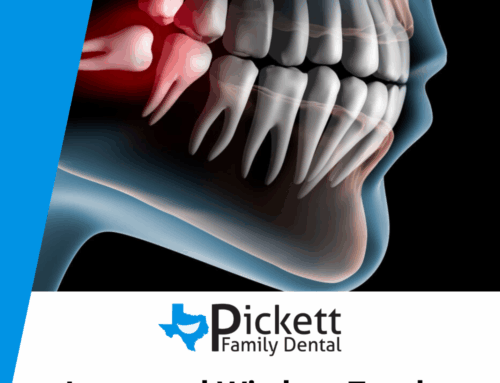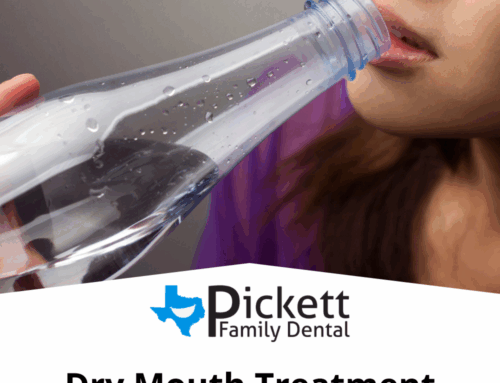We help expectant mothers in Keller, TX manage pregnancy gingivitis with gentle, effective dental care tailored to support both oral health and a healthy pregnancy.
Pregnancy brings many changes to your body, and your mouth is no exception. If you’ve noticed bleeding gums, swelling, or tenderness during brushing, you could be experiencing pregnancy gingivitis. This common condition affects a large number of pregnant women—especially in the second and third trimesters—and if left untreated, it can lead to more serious gum disease or even affect your pregnancy. At Pickett Family Dental in Keller, TX, we offer safe, compassionate dental care during pregnancy, helping you protect your smile and your overall health.
What Causes Pregnancy Gingivitis?
The primary cause of pregnancy gingivitis is hormonal fluctuation. During pregnancy, increased levels of progesterone and estrogen affect the body’s natural response to plaque—a sticky film of bacteria that forms on the teeth. This makes your gums more sensitive and more prone to inflammation, even if your oral hygiene routine hasn’t changed.
As your body supports your growing baby, blood flow increases throughout your body, including your gums. This extra circulation can cause the gum tissue to swell more easily, making it easier for bacteria to irritate the area. If plaque isn’t removed daily with proper brushing and flossing, it hardens into tartar, leading to more severe gum irritation.
Other contributing factors include:
-
Morning sickness, which increases acid exposure
-
Dry mouth due to hormonal changes
-
Changes in diet and snacking habits
-
Fatigue that makes brushing and flossing harder to maintain

Recognizing the Symptoms of Pregnancy Gingivitis
Pregnancy gingivitis can be easy to miss at first. But as the condition progresses, symptoms become more noticeable and uncomfortable. Be on the lookout for signs like:
-
Red or swollen gums
-
Gums that bleed when brushing or flossing
-
Persistent bad breath
-
Tenderness along the gumline
-
Receding gums or loose teeth (in more advanced cases)
These symptoms often begin as early as the second month of pregnancy and may peak around the eighth month. While these changes are common, they are not something to ignore. Treating gum inflammation early prevents it from developing into periodontitis, a more serious infection that can cause tooth loss and has been linked to pregnancy complications like preterm birth and low birth weight.
Safe and Gentle Treatments Available During Pregnancy
The good news is that pregnancy gingivitis is completely treatable, and dental care is safe during pregnancy—especially in the second trimester. At Pickett Family Dental, we customize your care to be safe, non-invasive, and focused on relief and prevention.
During your visit, we’ll perform a gentle cleaning to remove plaque and tartar buildup. We may also recommend:
-
More frequent cleanings throughout pregnancy
-
Antimicrobial mouth rinses
-
Fluoride treatments to strengthen enamel
-
Guidance on brushing techniques and soft-bristle toothbrush use
If your gums are especially tender, we’ll adjust our techniques to keep you comfortable. Your health and your baby’s health always come first, so we take extra care to use pregnancy-safe products and avoid unnecessary procedures.
What You Can Do at Home to Manage Gum Health
Preventing and managing pregnancy gingivitis doesn’t stop at the dental office. There are several habits you can adopt at home to reduce your risk and keep your gums healthy:
-
Brush at least twice a day with a fluoride toothpaste
-
Floss daily to remove plaque between teeth
-
Rinse with warm salt water to soothe inflamed gums
-
Drink plenty of water, especially after meals and snacks
-
Choose a soft-bristled toothbrush and replace it regularly
If morning sickness makes brushing difficult, try using a mild-flavored toothpaste or brushing at a different time of day when nausea is lower. You can also rinse with water or a baking soda solution after vomiting to neutralize acid before brushing.
Eating a balanced diet rich in calcium and vitamin C supports gum health and strengthens your immune system. Avoiding sugary snacks and acidic beverages can also reduce plaque buildup and inflammation.
What Expecting Mothers Ask About Pregnancy Gingivitis
Many mothers-to-be worry about whether it’s safe to see a dentist during pregnancy. The answer is yes. Preventive dental visits are not only safe—they’re encouraged. The second trimester is the best time for cleanings and non-urgent treatments, and we always coordinate with your OB-GYN when needed.
Some women ask if pregnancy gingivitis goes away after birth. In most cases, yes—but only if it’s treated properly. If left unmanaged, it can persist or progress into chronic gum disease.
Patients also wonder how pregnancy gingivitis is different from regular gingivitis. The symptoms are similar, but hormonal changes make the condition more aggressive and more difficult to control without professional care. That’s why early detection and consistent dental visits are so important during pregnancy.
For More Support with Gum Health During Pregnancy
For more support with your dental care during pregnancy, Pickett Family Dental in Keller, TX offers thoughtful, gentle solutions tailored to your changing needs. We know this is a special time in your life, and we’re here to help you protect your smile every step of the way.
From managing pregnancy gingivitis to routine cleanings and personalized advice, we make sure you feel safe, informed, and cared for. Schedule your prenatal dental visit today and take the next step toward a healthy mouth and a healthier pregnancy.
Your smile—and your baby—deserve it.



